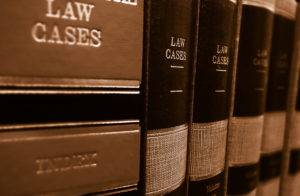On average, a wrongful death homeowners insurance payout average in Florida is around $100,000 in general liability.
Wrongful death settlements generally have higher payouts when homeowners insurance isn’t a factor.
Understanding Homeowners Insurance Coverage in Florida
Although Florida doesn’t make it illegal to not carry homeowners insurance, it’s best to have it to cover a range of problems that could potentially happen as protection. Homeowners insurance in Florida typically includes coverage for your home itself, other structures, personal property, loss of use, personal liability and medical payments to others.
In most cases, Florida homeowners file claims for weather-related issues such as flooding or wind damage. However, if you own a home and carry homeowners insurance, it can cover you for a considerably wider range of situations.
Florida Homeowners Insurance and Wrongful Death Coverage
As a homeowner, it’s fair to wonder whether your Florida homeowners insurance covers wrongful death. Wrongful death is covered under your personal liability coverage. If someone gets into an accident while at your home and suffers injuries severe enough to ultimately kill them, the personal liability coverage in your homeowners insurance will pay death benefits to their surviving family members.
Understanding Wrongful Death
Wrongful death is a category of personal injury law. It occurs when a person dies as a result of someone else’s negligence, recklessness or intentional act of violence. Although it means someone has died due to another person’s actions, it is a civil, rather than criminal, legal action.
Understanding What Constitutes Wrongful Death
The actions of another person that cause someone else to be killed are what constitutes wrongful death. There are many different situations that could lead to this, such as car accidents, medical malpractice, defective products or even homicide. However, there doesn’t have to be intent involved in a wrongful death situation; even a simple act of negligence that leads to someone getting killed can constitute wrongful death.
Need free legal help in Florida?
We specialize in personal injury claims.

Maximum Amount for a Homeowners Insurance Claim for Wrongful Death in Florida
There is no specific maximum amount for a homeowners insurance claim for wrongful death in Florida. All situations vary based on the circumstances. However, some homeowners choose to carry the minimum amount in general liability coverage. At the same time, there are usually exclusions detailed in many homeowners insurance policies that allow for maximum payout amounts. As a result, if someone were to tragically die after sustaining injuries from an accident while at a person’s home, the policy may allow for a maximum payout on a wrongful death claim.
What Types of Homeowners Insurance Claims Are Available for Wrongful Death in Florida?
In Florida, if someone dies while at a person’s home in an accident stemming from negligence, recklessness or an intentional act, the homeowner can file a claim with their homeowners insurance. Different claims are available for a Florida wrongful death situation. They include liability coverage and personal injury claims, property damage and property owners’ claims, actual cash value versus replacement cost of personal property claims and funeral expenses and pocket expenses claims.
Understanding Liability Coverage and Personal Injury Claims in Florida
Liability coverage is available for personal injury claims in Florida homeowners insurance if you are found responsible for injuries to another person or for damage to someone else’s property. This coverage can protect you by providing compensation if an injured person sues you for an accident caused by negligence in your home.
Understanding Property Damages and Property Owner Claims in Florida
If your home suffers any type of damage in Florida, you are able to file a claim through your homeowners insurance policy to cover the costs of repairs. As the property owner, you have a right to make a claim through your insurer if any part of your home or your personal property is damaged due to no fault of your own. Many of these types of Florida homeowners’ insurance claims are filed as a result of natural disasters and weather emergencies. However, many homeowners file claims for property damage because of someone else causing damage to their property.
Understanding Actual Cash Value vs Replacement Cost of Personal Property Claims in Florida
Some Florida personal property claims through homeowners insurance offer actual cash value while others give replacement costs. To determine which is the better option for your situation, it’s crucial to compare the two. Actual cash value gives you the value of your property minus depreciation. Over time, the value of property depreciates, so you won’t receive the same amount you paid for it when it was new.
Replacement cost value provides you with an insurance payout that takes into account how much it costs to replace the property. It also allows you to replace your damaged property with a brand new replacement that can be the same, less or more than what you originally paid for it.
Understanding Funeral Expenses and Pocket Expenses Claims in Florida
If a person suffers an accident and dies while at another person’s home, liability coverage from the homeowners’ insurance policy can provide death benefits to the victim’s surviving family members. This includes payment for the medical expenses incurred if the person spent time in the hospital prior to their passing, funeral and burial expenses.
What Factors Determine Homeowners’ Insurance Amounts in Florida?
There are several different factors that can determine a Florida homeowner’s premium amounts in their homeowners insurance. They include the negligent party’s actions and Florida Governor Ron DeSantis’ regulations, medical care, treatment and professional fees that are covered by the insurance policy and covered peril provisions of the homeowner’s policy.
Understanding the Negligent Party’s Actions and Ron DeSantis’ Regulations
If a homeowner is found to be negligent in causing the wrongful death of another person, their insurance premiums are naturally higher. However, the exact amount paid toward a homeowners insurance policy depends on the nature and severity of those negligent actions.
Additionally, Florida homeowners, in general, face much higher premiums than those in other parts of the country thanks to regulations signed by Governor Ron DeSantis. Over the past year, premium amounts increased by 42% and a whopping 206% since DeSantis took office in 2018.
Understanding Medical Care, Treatment and Professional Fees Covered by Policy
When someone suffers injuries at another person’s home, homeowners insurance can provide medical care and professional fees through medical payments coverage. The homeowner can take advantage of this coverage to pay for these expenses regardless of whether they are at fault for the accident. This coverage is usually set to a maximum limit of $5,000.
Understanding Covered Peril Provisions of the Homeowner’s Policy
All homeowners policies include covered peril provisions. Covered perils are different issues that can cause damage to your home, personal injury or even death. They include weather conditions like hurricanes, natural disasters such as floods, acts of vandalism or theft, falling objects, accidental water overflow or steam discharge, power surges and fires. However, each homeowners insurance policy is different, so what’s covered may vary depending on your particular policy.
Need free legal help in Florida?
We specialize in personal injury claims.

What Are Your Rights When Filing a Homeowners Insurance Claim in Florida?
As a homeowner, it’s absolutely essential to know your rights when you have to file a homeowners insurance claim in Florida. You have the right to know how homeowners insurance policies work and the protections available to you when you file a claim.
The Importance of Knowing How Homeowners Insurance Policies Work
You must know how your homeowners insurance policy works in order to take full advantage of it. Your policy exists to help you repair or rebuild your home if an event occurs that causes it to suffer damage. This can be a weather-related event or a natural disaster such as a fire or flood. Homeowners insurance also helps to pay for damage to your personal property and medical expenses if someone suffers an injury while at your home. Additionally, if a person dies because of an accident caused by negligence at your home, your insurance can protect you if a wrongful death claim is filed.
When you know what to expect with your homeowners insurance policy, you’re protected from any potential unpleasant surprises.
What Protections Are Available When You File a Claim with Your Homeowners Insurance?
Homeowners insurance protects you when you file a claim. The protections you get are for yourself, your home and your belongings if an unexpected event occurs that leads to injuries or damage. Even a standard policy will cover you with personal liability, personal property protection, dwelling and other structures protection.
Why You Should Review Your Homeowners Insurance Policy Carefully
It’s crucial to always carefully review your homeowners insurance policy. Doing so ensures that you are aware of any protections available to you, your home and your personal property. It also allows you to check whether all the information in your policy is accurate and eliminates the element of surprise if you have to file a claim.
Many homeowners insurance policies offer coverage for certain situations and conditions. Those might include flooding, earthquakes and ground movement, rats, termites and other infestations, mold, aggressive pets and owner neglect or poor maintenance.
Coverage for Flooding
Florida doesn’t require homeowners to carry flood coverage with their homeowners insurance policy, but it’s wise to have it. It can help protect your home if you need repairs after a flood. Flood coverage can also protect your personal belongings if they suffer water damage.
Coverage for Earthquakes and Ground Movement
Florida is not known to experience earthquakes. Additionally, a standard homeowners policy doesn’t usually cover earthquake or ground movement protections. However, it’s possible to add such coverage in the event of an issue like a sinkhole or landslide.
Coverage for Rats, Termites and Other Infestations
Typically, standard home insurance policies only cover damage to your home and personal belongings when that damage is caused by perils. Rats, termites and other infestations do not fall under that category, so they are not usually covered by your home insurance policy. Instead, they may be considered a preventable loss that could have been avoided with proper maintenance, inspections and other measures. In other words, if your home has rats or termites, your home insurance will not cover the damage caused by them.
Coverage for Mold Damage
Generally, homeowners insurance does not cover mold damage unless a covered peril causes it. For example, if your home suffers water damage as a result of a hurricane and you end up with mold damage, it would be covered under your insurance policy. Meanwhile, failing to adequately clean up a water spill on your carpet that leads to mold development would not be considered by your policy.
Coverage for Aggressive Pets
Homeowners insurance provides coverage for aggressive pets. If you have a dog and they bite someone who is visiting you, your insurance policy can cover the damages. In some cases, if your dog has a history of aggression, you might be considered liable in spite of your coverage.
Coverage for Owner Negligence or Poor Maintenance
Home insurance does not cover you for owner negligence or poor maintenance. As a homeowner, you are required to take the proper steps to ensure that your home is safe and livable and that damage doesn’t occur because of sheer negligence.
How Can You File a Homeowners Insurance Claim in Florida for Wrongful Death?
If your homeowners insurance includes liability insurance for personal injury and death to another person, you may be able to file a claim for wrongful death in Florida. However, this would apply if your negligence or recklessness caused an accident that led to someone’s death. Your insurance policy might be able to cover you in those situations. If the person’s death was not caused by negligence or recklessness on your part as the homeowner, the insurance company could deny the claim.
Knowing What Steps to Take to File a Claim with an Insurance Provider
There are certain steps to take when filing a claim with an insurance provider through your homeowners insurance policy. Determine how much your deductible is and the length of time you have to file. Fill out any pertinent claim forms and include documentation showing evidence of the incident. Photos and paperwork are important pieces of evidence.
In some cases, an insurance adjuster might visit your home for more information. Once they have spoken to you directly, you can expect a settlement offer from the insurance company. It’s wise to consult with an attorney to ensure that you get a reasonable offer to protect yourself.
Always Gather Necessary Documentation Before Filing
The importance of gathering necessary documentation before filing cannot be overstressed. The more evidence you have to support your claim, the more likely the insurance company will accept it and the better your settlement offer.
Frequently Asked Questions
What Is the Average Wrongful Death Settlement in Florida?
The average wrongful death settlement in Florida ranges from around $500,000 to $1 million. Of course, every case is unique, so the circumstances can determine how much the victim’s survivors receive in their settlement.
What Are the Damages for Wrongful Death in Florida?
There are different damages available in a wrongful death case in Florida. They include both economic damages that carry specific dollar amounts and noneconomic damages that don’t have any particular monetary amount. In some cases, if the case goes to trial, the jury may also decide to impose punitive damages to punish the defendant for outrageous behavior in causing the victim’s death. Damages include medical expenses, lost wages, pain and suffering, funeral and burial expenses, emotional distress, mental anguish, loss of consortium, loss of companionship, loss of services and loss of guidance.
Is There a Cap on Wrongful Death in Florida?
In Florida, there is no cap on the damages available in a wrongful death situation.
How Much Is Florida Home Insurance?
The average cost of homeowners insurance in Florida is nearly $2,400 per year or around $200 per month.
What Is the Most You Can Sue for Wrongful Death?
There are no damage caps in wrongful death cases unless the death was caused by medical malpractice. As a result, you can sue for any amount for wrongful death.
Are Wrongful Death Settlements Taxable in Florida?
There are no tax implications on wrongful death settlements in Florida. The only exception is the victim’s would-be earnings.
Who Can Recover From the Wrongful Death Statute in Florida?
In Florida, certain family members are able to recover damages per the state’s wrongful death statute. This includes the victim’s surviving spouse and children under the age of 25. However, if the victim was not married or had no children, their surviving parent(s) or even other family members by blood or through adoption can recover damages.
How Do I Prove Wrongful Death in Florida?
To prove wrongful death in Florida or elsewhere, a few elements must be present. The first is that someone died. The second is that the victim died as a result of the defendant’s actions. The third is that the action that caused the person’s death was negligent, reckless or intentional. Finally, the fourth element of wrongful death is that the victim left behind survivors who suffered harm as a result of their loss.
Who Is Qualified to File a Wrongful Death Claim in Florida?
In Florida, the victim’s personal representative must file an action for wrongful death on behalf of the survivors.
Can a Parent Sue for Wrongful Death in Florida?
The victim’s personal representative must be the one to file a wrongful death claim in Florida. However, they can do that on behalf of a parent based on the circumstances.
What Is the Maximum Malpractice Award in Florida?
The maximum award for medical malpractice in Florida is $500,000. However, that can increase to $1 million if the victim is left in a permanent vegetative state or dies.
What Is the Difference Between Wrongful Death and Survival Action in Florida?
In Florida, wrongful death lawsuits revolve around the damages suffered by the decedent’s survivors. Survival action claims focus on damages the victim suffered immediately after sustaining an injury up to their death.
Is There a Cap on Pain and Suffering in Florida?
There is no cap on pain and suffering damages in Florida unless the incident involves medical malpractice.
Need free legal help in Florida?
We specialize in personal injury claims.






